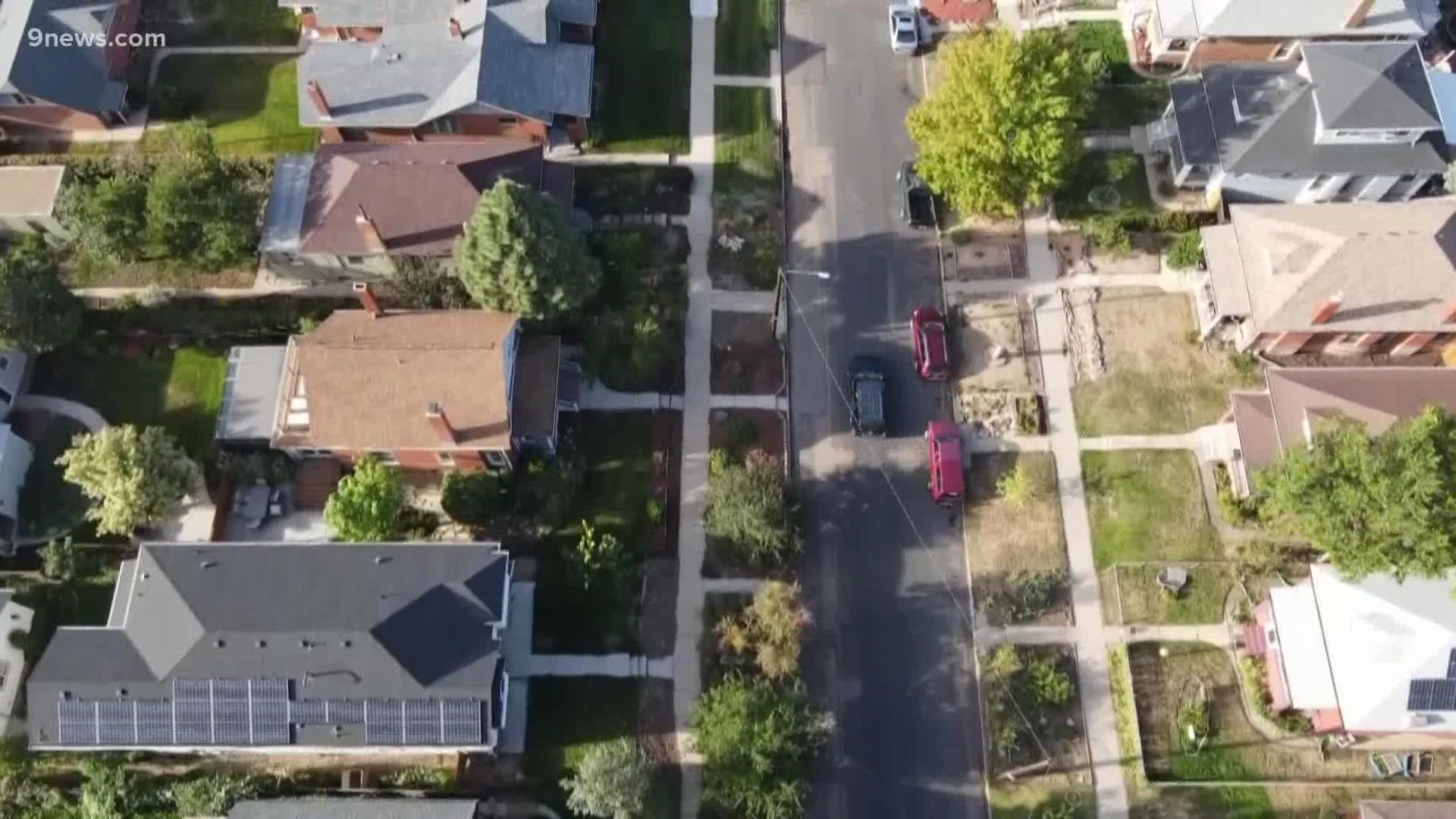COLORADO, USA — For the first time in three years, the Federal Reserve announced an interest rate hike this week.
The quarter-point hike is likely the first of several hikes this year, with the goal of curbing the worst inflation since the 1970s.
Consumers will have less borrowing power. At the same time, home prices in Colorado keep setting records, and buyers are racing the clock.
9NEWS sat down with Kishore Kulkarni, Distinguished Professor of Economics at MSU Denver, and Kelly Moye with the Colorado Association of Realtors to better understand the impact of rising rates.
(Editor’s note: This interview has been edited for context and clarity.)
9NEWS: Why is the Federal Reserve raising interest rates now?
Kulkarni: Mainly because we have the highest interest rate of inflation right now, the highest in the last 40 years. It's 7.9%, almost 8%.
Part of the reason is we’ve had way too much money supply increase the last few years, especially last year. And we have a tremendous increase in government expenditure because of the pandemic. Both of those factors added to total demand for -- we call it "aggregate demand." As the demand increases, the prices go up. Another reason is we have supply shocks, supply chain problems, which doesn’t make us produce a whole lot – another reason prices go up.
Now that they have gone up, how do we stop them? One way to stop it is by raising the interest rate. If we raise the increase rate, people borrow less. If you borrow less, you spend less. If you spend less, the prices will probably go down. I know the Fed has raised it only by 0.25%. That is a small increase. They have also promised – threatened – they are going to increase the interest rate three more times this year. And when that happens, there will be a substantial increase in the interest rate, and therefore reduction in total demand.
Mortgage rates are increasing, too. What is the relationship between mortgage rates and the Federal Reserve hike?
Kulkarni: It’s a chain event. What the Federal Reserve does is increases the rate of interest by which they give loans to commercial banks and financial institutions. So financial institutions, like our First Bank, Wells Fargo, they can always borrow from the Federal Reserve bank. That loan is called discount and advances. Interest rates on those loans are called discount rate. It is the discount rate which the Federal Reserve increases.
That is a signal to the financial institutions that it is not going to be as easy to borrow from the Federal Reserve. Then they don’t lend to each other as much. And the interest rate at which the financial institutions lend to each other is called the federal funds rate. So the federal funds rate goes up. And then the federal funds rate increase has a reflection on the prime rate. And the prime rate is the rate at which you and I borrow from financial institutions.
Mortgage rates have risen above 4% for the first time since 2019. What is the impact on homebuyers?
Moye: The rates have already increased a couple of times. Looks like they’re going to do that a couple more times throughout the year. All that’s doing is reducing purchasing power for our buyers.
They have a purchase price budget, then they know they have to go over that to get a house these days. Then all of a sudden the interest rate goes up and their purchase price drops $50,000. So now they have to go even lower, and a lot of those houses don’t even match the criteria of what they were originally starting to look for. So they either adjust their criteria or adjust their location or decide not to buy. It’s a very stressful, challenging situation for buyers right now.
What do you anticipate for the Colorado housing market moving forward?
Moye: I think what happens is, rates go up. Prices go up. And even though there’s demand, if people can’t afford to live here, they will choose somewhere else. Then demand will go down and inventory will go up, and the market will balance. And it will cool or plateau or whatever it is, but that is the way the natural cycle will go.
Are people starting to give up their home buying dreams?
Moye: We have not seen that very much, surprisingly. I thought more people would say, "That’s it, I give up, try again later." I think people realize later does not mean better. Later could mean worse. Our prices appreciated 25% last year. Those people who didn’t buy a year ago are kicking themselves today.
I think buyers recognize that buying right now, the rates are going to be as good as they’re going to get for a while and that would make a lot of sense. So I don’t see many of them throwing in the towel. Doesn’t mean they don’t want to sometimes.
SUGGESTED VIDEOS: Colorado real estate market

